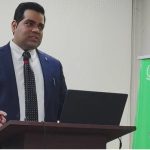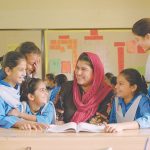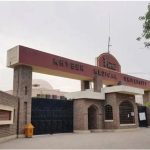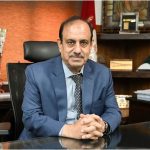Islamabad : The introduction of the Single National Curriculum (SNC) is a step in the right direction. However, the reforms in the education sector should be continued to provide children with the optimal learning opportunities in the languages they could best understand, especially the mother language.
This was the crux of the thoughts shared by experts from the education and development sectors during a webinar on ‘Role of Languages in Learning & Cognitive Development’ organised by Sustainable Development Policy Institute (SDPI) in commemoration of International Mother Languages Day.
Joint Education Advisor, Ministry of Federal Education and Professional Training (MOFEPT), Rafique Tahir asserted that the main objective of the SNC was to offer one single and united curriculum to students from diverse backgrounds. Besides, the SNC is also a test curriculum and is open to changes.
Dr Ghulam Ali, Director, Centre for Languages and Translation Studies, Allama Iqbal Open University (AIOU), said that language and construction of reality go together and any language which is unfamiliar to a child, cannot be helpful in learning.
He added that we should first teach language as a subject and then start teaching them another discipline in that language. He suggested that knowledge creation in the national language or in the local languages by translating science and mathematics in these languages would ultimately lead us to take a national stance on education and learning.
Dr. Abid Qaiyum Suleri, Executive Director, SDPI, in his opening remarks said that uniformity in education was the need of the hour and SNC is a step in the right direction.
“The bifurcation between the Urdu and English systems of education in Pakistan has been under discussion since long and thus, practical measures were being awaited,” Dr. Suleri said.
He added that in Pakistan, almost 75 languages are being spoken. Only 25 of these languages are facing extinction that we may avert through collective efforts, he added.
Dr. Nargis Abbas, Assistant Professor, University of Sargodha, was of the view that language is the obligatory instrument of the whole learning process while mother language helps a child to develop his/her cognitive development and literacy skills.
She added further that learning in secondary language goes through the thought process. Thus, the conceptual gaps occur when a child is taught in secondary languages, which ultimately impacts their learning in their whole life, she said.







